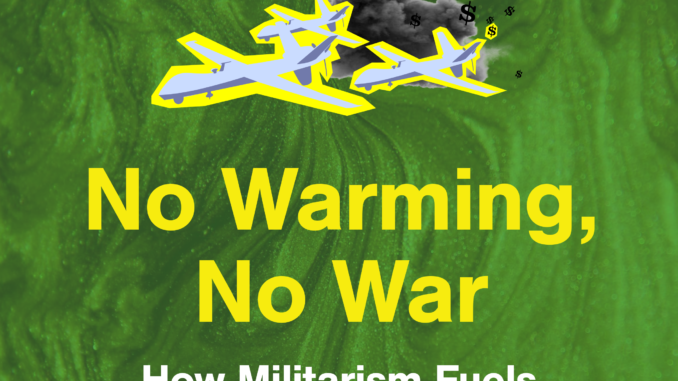
On Earth Day’s 50th anniversary, I’m excited to share with you a new resource from the National Priorities Project at Institute for Policy Studies: No Warming, No War: How Militarism Fuels the Climate Crisis – And Vice Versa!
INTRODUCTION
In a strange twist, it has taken a global pandemic to significantly reduce the world’s fossil fuel emissions.
The COVID-19 pandemic has utterly changed life as we know it — but it’s also laid bare how Washington’s militaristic budget priorities have left the country woefully unprepared for a crisis. With massive shortages in public health resources and shocks to the broader economy throwing Americans off their health care, states are left clamoring for help from the military to cope.
All this could be a preview of shocks to come as our climate crisis continues unabated.
While meaningful climate action has stalled on Capitol Hill and in the White House, planners at the Pentagon have been quietly preparing a militarized, “armed lifeboat” response to climate chaos for years. Unfortunately, the tendency to understand climate change as just another national security issue has misdirected resources away from the programs that we need to mitigate and adapt to a warming climate.
In this report, we’ll lay out how militarism and the climate crisis are deeply intertwined and mutually reinforcing. The military itself, we explain, is a huge polluter — and is often deployed to sustain the very extractive industries that destabilize our climate. This climate chaos, in turn, leads to massive displacement, militarized borders, and the prospect of further conflict.
True climate solutions, we argue, must have antimilitarism at their core.
In the face of both COVID-19 and the climate crisis, we urgently need to shift from a culture of war to a culture of care. Funneling trillions into the military to wage endless wars and project military dominance has prevented us from investing in true security and cooperation. If we don’t transform our society and the way we confront crises, we will face even more unjust and inhumane realities in a climate-changed future.
